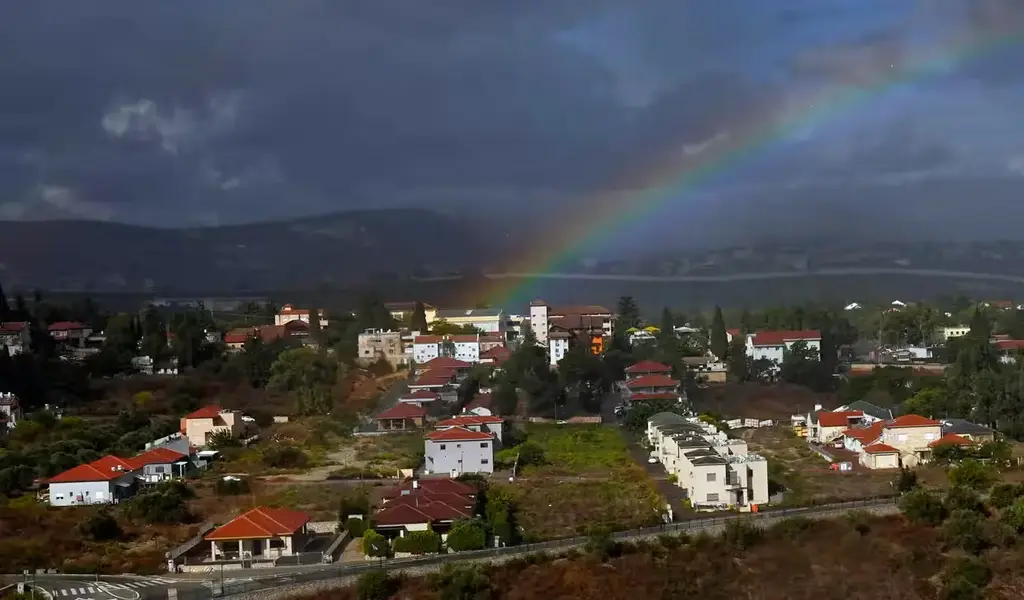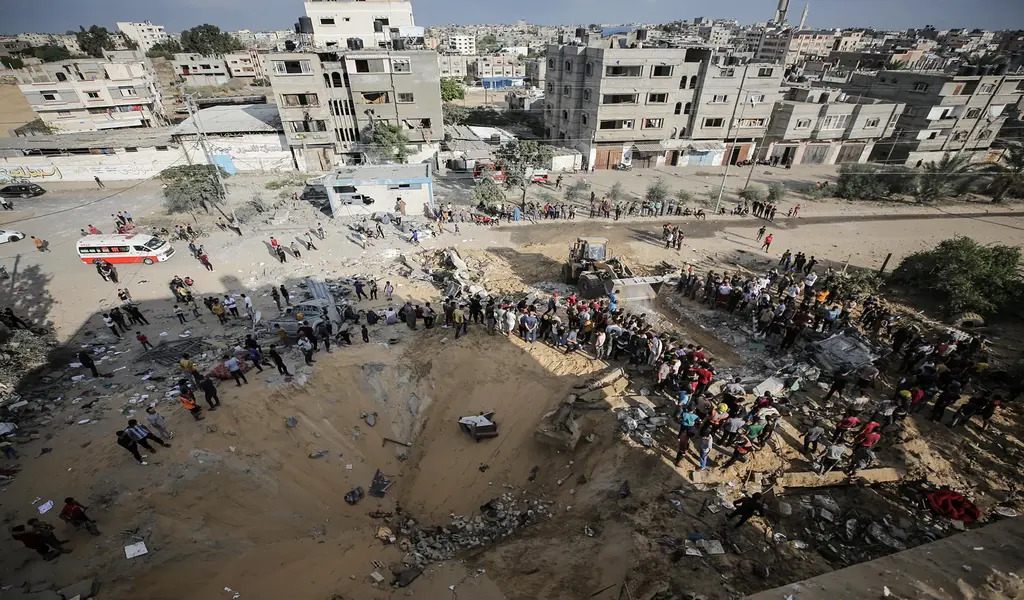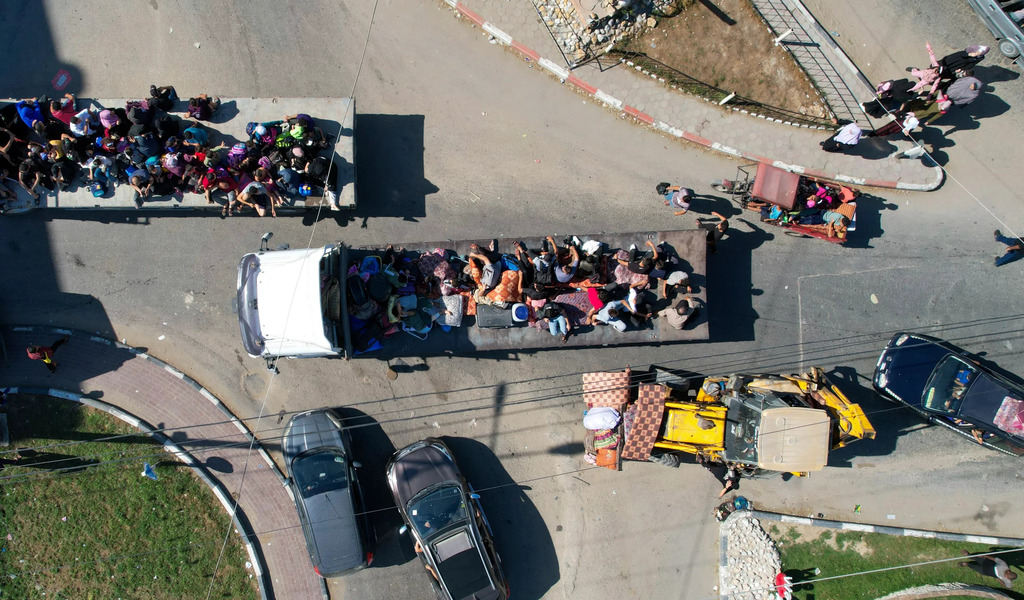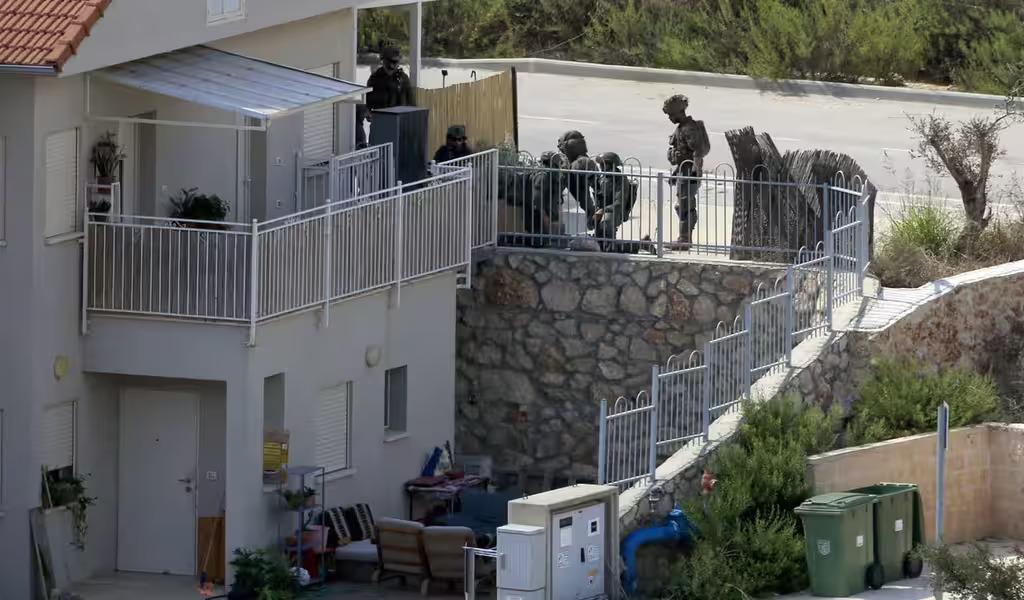News
‘It Will Be Worse Than Hamas’: Evacuation Order Sparks Fear in Northern Israel

(CTN NEWS) – The situation in northern Israel, particularly along the border with Lebanon, has become increasingly tense, and it’s raising concerns among both residents and policymakers.
The Israeli Defense Ministry recently issued an unprecedented evacuation order for residents of 28 villages and kibbutzim located within a 2-kilometer radius of the border.
This move is a response to the potential outbreak of hostilities with Hezbollah, a powerful Lebanese militia backed by Iran, and it’s happening concurrently with the recent conflict with Hamas in Gaza.
In this otherwise scenic part of northern Israel, where tourists typically visit to enjoy the beautiful landscapes and hiking trails, the atmosphere is currently far from peaceful.
The region, which usually sees an influx of tourists during the Jewish high holiday season, is now being emptied due to the ongoing tensions. The sporadic rocket and missile attacks, along with border skirmishes, have raised anxiety levels among the residents.
Moreover, there is a sense of unease about the potential for escalation, which is different from the usual challenges faced in the region.
The odds of further conflict with Hezbollah, Palestinian factions in the occupied West Bank, or even a direct confrontation with Iran have increased significantly, marking a departure from the usual “shadow war” dynamics seen across the region in recent years.
This uncertainty and fear are compounded by the novelty of the situation, leading to reduced trust in the government and the military.
The people living in these communities are not only concerned about history repeating itself but also about the unprecedented challenges they currently face.
The overall mood in Israel is one of anxiety and apprehension as the nation grapples with multiple complex security threats on different fronts.
The ongoing tension in the eastern Mediterranean, marked by the deployment of a second aircraft carrier group to bolster Israel’s defenses, has set the stage for a challenging situation that could lead to hostilities.
The decision to send additional military assets is seen as a clear message to Tehran and other actors in the region. Many in the Israeli media are advocating for a “pre-emptive attack” on Hezbollah as a preventive measure.
The region is already witnessing significant unrest and insecurity. The recent attack by Hamas, which saw militants infiltrate Israeli territory and seize hostages, led to a significant loss of life.
In response, Israel launched a large-scale bombing campaign in Gaza, causing numerous casualties and displacing a substantial portion of the Palestinian population.
Despite efforts to negotiate aid and safe passage for foreign nationals in Gaza, the situation remains dire, with the Rafah border crossing to Egypt remaining closed.
The growing military buildup and heightened tensions have caused considerable anxiety among Israelis. Many reserve soldiers have been called up for duty, leaving their families in a state of constant concern.
The potential for a broader regional conflict is looming, and the situation remains highly uncertain.
The situation in Israel is becoming increasingly precarious, with the country potentially facing hostilities on multiple fronts.
The deployment of a second aircraft carrier group to bolster Israel’s defenses signifies the seriousness of the situation, and many Israelis are growing concerned about the prospect of a two-front war.
Despite a relatively calm period since the 2006 war with Hezbollah, the northern border with Lebanon has seen rising tensions, and the situation along the blue line, which separates Israel from Lebanon, has been particularly strained.
While both Israel and Hezbollah have sought to avoid a large-scale conflict, the recent developments indicate that the risk of war is higher than it has been in years.
Israeli towns near the northern border are taking precautions, with residents leaving their homes for safer areas, and the Israeli Defense Forces (IDF) are on high alert.
The situation remains highly fluid, and there is a palpable sense of unease and concern among both civilians and military personnel.
In northern Israel, the situation remains highly unpredictable and residents are grappling with the fear of a potential full-scale conflict involving Hezbollah.
This is especially disconcerting given the growing sophistication of Hezbollah’s weaponry and its experience gained from the Syrian conflict.
The possibility of a multi-front war involving not only Hezbollah but also Palestinian factions in the West Bank and possibly even Iran is a significant source of concern.
The Israeli military is actively preparing for such a scenario, and the evacuation orders for residents living near the Lebanon border demonstrate the seriousness of the situation.
The latest developments in the region have sparked a sense of urgency and a fear of what might come next, particularly with Iran’s support for its proxy forces in the region and the U.S. deploying additional naval assets to the eastern Mediterranean.
Israelis are faced with the reality that they might be drawn into a wider regional conflict, which raises serious questions about the prospects for peace and security in the near future.
While diplomacy remains an option, the uncertainty surrounding the situation is causing many to brace for the worst while hoping for a peaceful resolution.
The situation in northern Israel is growing increasingly tense, with residents expressing deep concerns about the potential for a ground war with Hezbollah, which they believe would be far more devastating than previous conflicts with Hamas.
The memories of the 2006 war with Hezbollah still linger in the area, and the prospect of renewed hostilities is causing significant anxiety.
Residents are worried about the capabilities and support that Hezbollah, backed by Iran, possesses, and they fear the group’s superior weaponry and possible Iranian assistance could result in a much more intense conflict compared to the sporadic rocket attacks they’ve experienced from Hamas.
There is a strong sense of vulnerability, especially if ground fighting were to occur.
While northern Israel has enjoyed relative calm and economic growth in the aftermath of the 2006 war, the recent escalation of hostilities has prompted an exodus from the region, with residents leaving their homes for safer areas to the south.
The fear of a multi-front war is taking a toll on the morale of both civilians and the military, leaving many people with deep concerns about their safety and the future of the region.
MORE RELATED NEWS:
El Deif, The Alleged Mastermind Of The Hamas Attack: What You Need To Know
Poland’s Law And Justice Party Leads In General Election, Third Term Uncertain
EU Regulators Delay Approval For Novavax’s Variant-Tailored Covid-19 Vaccine
Ex-F1 Boss Bernie Ecclestone Given Suspended Sentence After Pleading Guilty to Fraud
Another 6.3 Magnitude Earthquake Strikes Western Afghanistan, Adding To Recent Tragedies































